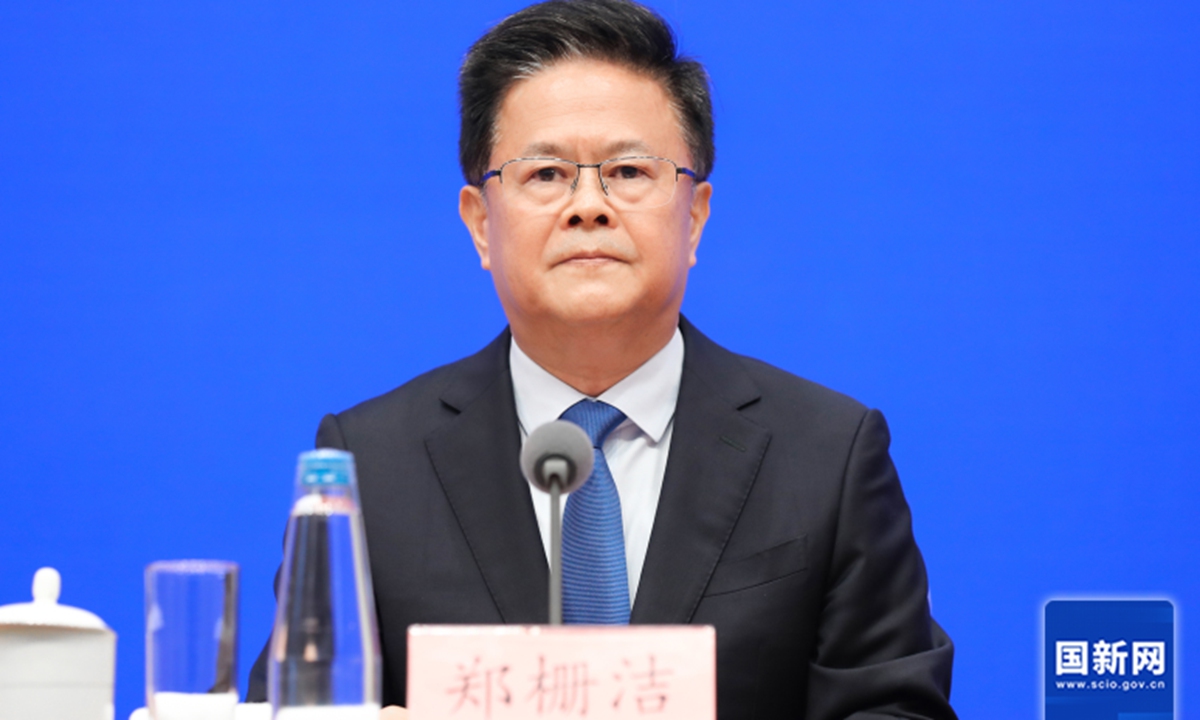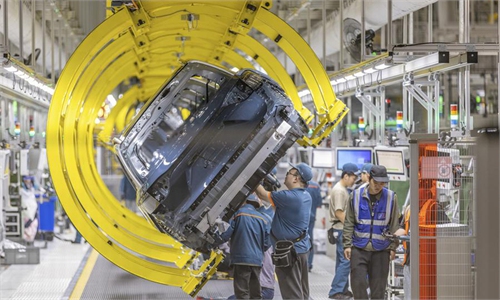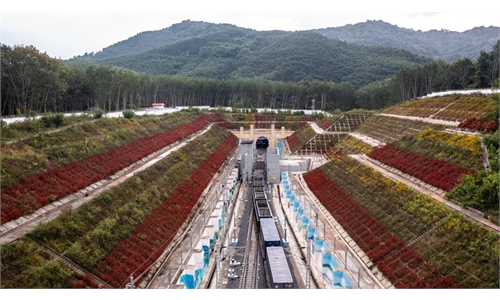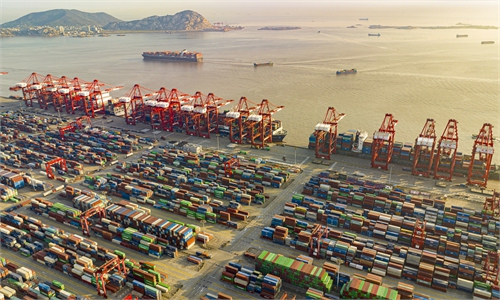
Zheng Shanjie, head of the National Development and Reform Commission
China's top economic planner on Tuesday expressed full confidence in achieving the tasks and the goals set for economic and social development in 2024, supported with a raft of incremental pro-growth policies to shore up the country's economic growth.
"Two words summarize the status quo of the Chinese economy 'steady' and 'progress'," said Zheng Shanjie, minister in charge of the National Development and Reform Commission, at a press conference held in Beijing on Tuesday, the first working day after the seven-day National Day holidays.
In terms of the supply side, the country's agriculture production is steady and another yearly harvest is expected this year. The country's value-added industrial output, an important economic indicator, expanded by 5.8 percent year-on-year in the first eight months, Zheng said.
As for the demand side, home investment and consumption continues to rise, with manufacturing investment during the January-August period up by 9.1 percent, 5.7 percentage points higher than the country's total fixed-asset investment for the period. Meanwhile, the country's sales of automobiles and homes appliances have rebounded recently, with major carmakers' vehicle sales expected to grow by 10 percent month-on-month in August, according to the official.
Moreover, the country's employment situation is steady, as a total of 9.44 million new urban jobs were created in the first eight months, an increase of over 200,000 over the previous year. The country's consumer price index, the primary gauge of inflation, rose by 0.6 percent year-on-year in August, Zheng said.
More importantly, China's economic structure is also improving, with new growth momentum gaining speed. In the first eight months, the country's industrial output of high-tech manufacturing jumped by 8.9 percent and that of equipment manufacturing up by 7.6 percent year-on-year, Zheng said.
Zheng admitted that the Chinese economy faces some difficulties and problems. He said the external environment is becoming more complex, with the latest IMF forecast predicting global growth to reach 3.2 percent this year, which is lower than last year's growth rate.
Major economies are seeing growth momentum weakening, rising debt burdens, fluctuating international financial markets, and increasing global trade protectionism and instability. All this will have adverse impact on China, the minister said.
He said the economic downward pressure increases slightly, with some economic indexes like industrial output, investment and consumption showing fluctuations, while some industries experiencing "involution" competition and some enterprises cannot accommodate to the changes brought about by upgrade and transformation.
However, China's long-term economic prospects remain unchanged, and the Chinese economy has strong resilience and ample potential to expand, Zheng said, noting that domestic market expectations have improved as pro-growth policies continue to take effect.
"We have full confidence in achieving the annual goals and tasks set for economic and social development as well as attaining sustained, healthy economic and social development," Zheng noted.
The Political Bureau of the Communist Party of China Central Committee held a meeting on September 26 which said that the country should effectively implement existing pro-growth policies, step up efforts to roll out more incremental policies, and make policy measures more targeted and effective.
Zheng said a raft of incremental pro-growth policies aim to strengthen counter-cyclical adjustments, expand domestic demand, step up efforts to assist enterprises, stabilize the property market and bolster the capital market in order to support sustained economic recovery and growth.
Zheng underlined the need to strengthen coordination of macro-policies including fiscal, monetary and investment and consumption, and income distribution to foster a faster economic growth.
Global Times



